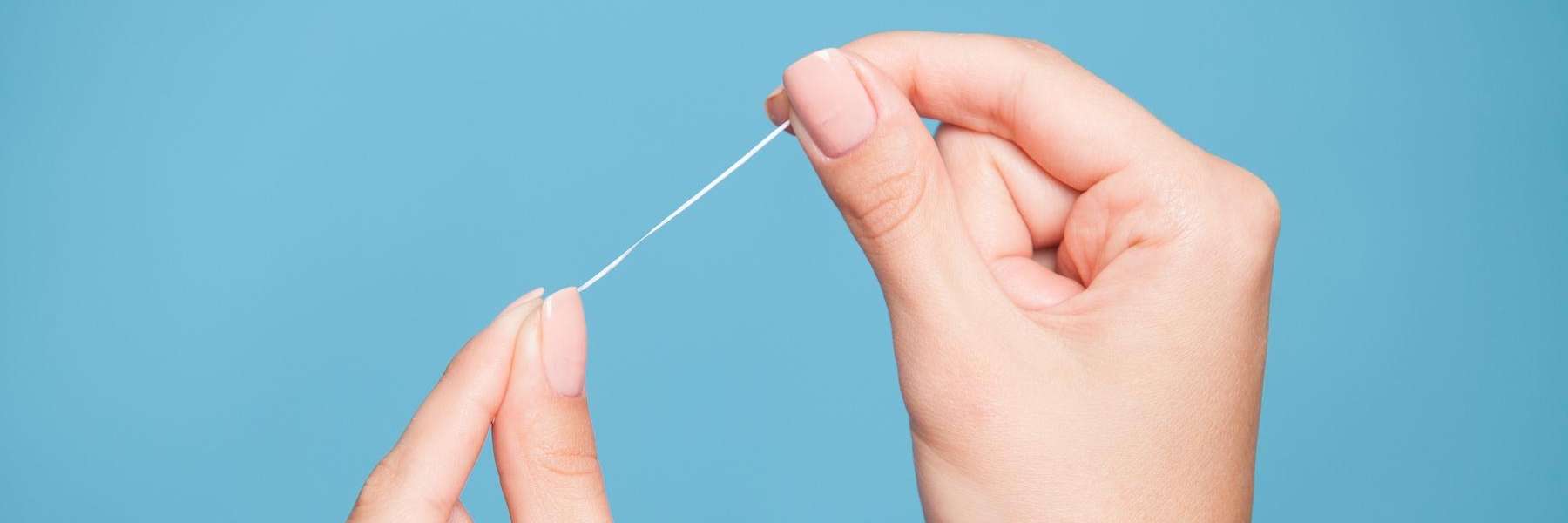
Patients are often reminded that maintaining good oral health requires regular cleanings, exams, and brushing and flossing regularly. Excellent dental hygiene will undoubtedly keep your body and smile happier and healthier.
Through regular dental care and excellent oral hygiene, you lower your risks for:
- Gingivitis
- Gum Disease
- Tooth Decay
- Oral Infections
- Bad Breath
Gum disease is especially concerning because studies link it to many severe conditions.
What Is a Waterpik?
Dental floss and a Waterpik keep your teeth and gums clean and healthy. However, there are some key differences between the two.
As we all know, dental floss is a thin thread of material used to remove plaque and debris between teeth. Waterpiks, on the other hand, is a brand of water flosser that uses a stream of water to dislodge food and plaque from the teeth.
The best way to keep your teeth clean is to use dental floss and a Waterpik daily. Both methods effectively clean the teeth, but Waterpiks may be more effective at reaching hard-to-reach areas. In addition, Waterpiks can be helpful for people with braces or other dental devices that make it difficult to floss effectively.
Upping Your Oral Hygiene: How Is a Waterpik Useful?
It's important to note that a Waterpik doesn't replace brushing and flossing. Waterpiks are an excellent choice and addition for anyone looking for an effective way to improve their oral health, including people who:
- Wear braces
- Have tightly spaced teeth
- Find it challenging to floss
- Have periodontal pockets
- Have bridges
- Have crowns
- Have veneers
- Have dental implants
- Have an impacted wisdom tooth
- Have difficulty flossing due to arthritis or dexterity issues
Taking good care of your smile at home and with regular dental exams can minimize or prevent oral health issues caused by dental work or the inability to floss. Gingivitis and gum disease can develop if you cannot brush or floss around dental work, and veneers and crowns do not protect teeth from decay. When it comes to keeping dental work clean, Waterpiks prove incredibly beneficial.
How Does Dental Floss Work?
Dental floss is essential to oral hygiene, but how does it work? First, you must learn the tooth's anatomy to understand how dental floss works. The tooth is made up of three main parts:
- The enamel: The hard outer casing
- The dentin: A softer layer beneath the enamel
- The pulp: Contains blood vessels and nerves
When plaque builds up on teeth, it first builds up on the enamel. However, over time, plaque can begin to erode the enamel and make its way down to the dentin. Once decay reaches the dentin, it can cause severe damage to the tooth. This is how dental floss helps.
Dental floss removes plaque from teeth by getting between them and gently cleaning it away. It can also help to remove food particles that may be stuck between teeth. Because of this, dental floss is an effective tool for keeping teeth clean, preventing cavities, and preventing gum disease.
Is a Waterpik Better Than Floss?
Sometimes, a Waterpik may be the better option when teeth are crowded or covered in some way (think braces). Of course, if you can incorporate both, all the better!
The jet on your Waterpik gently but effectively eradicates debris from the teeth, including hard-to-reach areas. Your floss does the same thing, but the method is manual rather than electric.
Pricewise, dental floss wins, but the Waterpik may pay for itself over time by saving you time and money treating preventable oral health issues.
When in doubt, we recommend talking to your Charlotte dentist or hygienist. They can recommend the best tools for your unique oral health profile.
The Scary Prevalence of Periodontal Disease
So, which one is right for you? The short answer is that it depends.
If you find flossing challenging, a Waterpik can be very useful for maintaining oral health. But then we have another issue. Many people don't seem to enjoy flossing. The American Dental Association recommends flossing at least once a day, yet a survey conducted by the ADA found that only 4 out of 10 Americans do so. Worse yet, 20 percent of Americans say they never floss at all.
There are too many people living with periodontal disease to be comfortable with these numbers:
- Nearly one out of two people is affected by it
- 70.1% of adults 65 years and older have it
- It is more prevalent in men (56.4%) than in women (38.4%)
- 64.2% of current smokers suffer from this condition
Left untreated, it can lead to tooth loss, receding gums, and tooth decay. But it's preventable with proper oral hygiene.
So please use your toothpaste, toothbrush, floss, or Waterpik. These simple measures can go a long way toward preventing damage from tooth decay or cavities. Taking preventative action is much easier than restoring what has been lost. Additionally, if you’re experiencing tooth pain, please understand this is not normal. If you are in or around Charlotte, please immediately contact Harlow Dental.
Is It Time for Your Checkup and Teeth Cleaning in Charlotte, NC?
Healthy gums and teeth don't just happen by chance; they take hard work and dedication to maintain. As professionals, we do not judge or scold; we understand that anxiety and busy schedules can make symptoms go unnoticed. Additionally, we know that patient education can lay the foundation for a lifetime of healthy teeth and gums. By scheduling regular appointments with Dr. Harlow in Charlotte, you can address problems while they're still easy, fast, and inexpensive to treat. Contact us today—you'll be glad you did!
